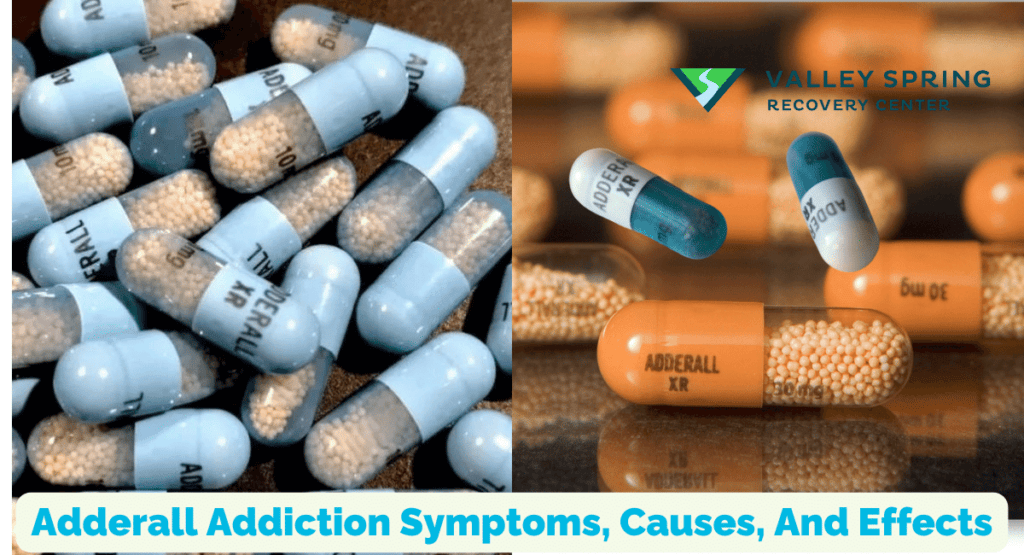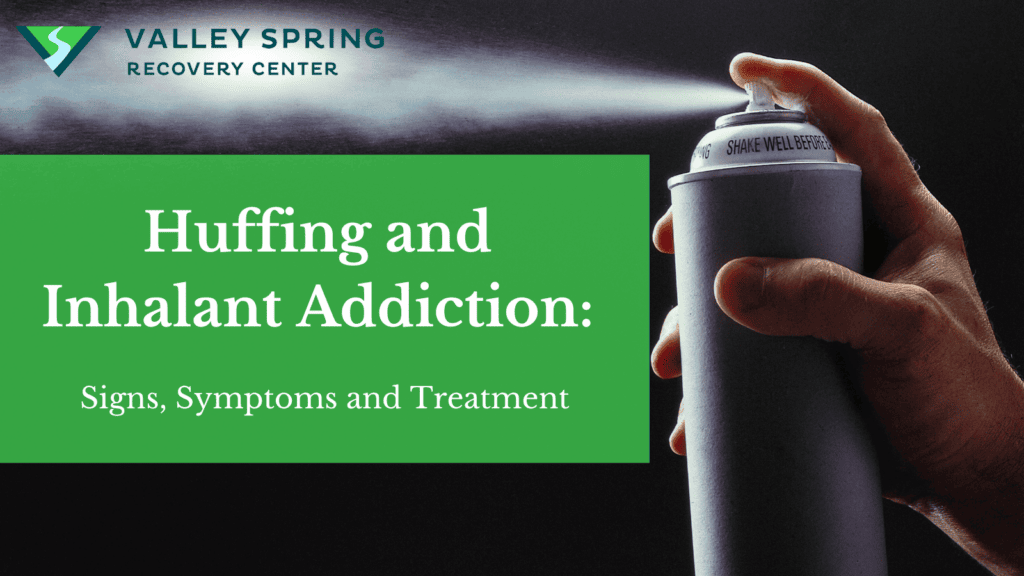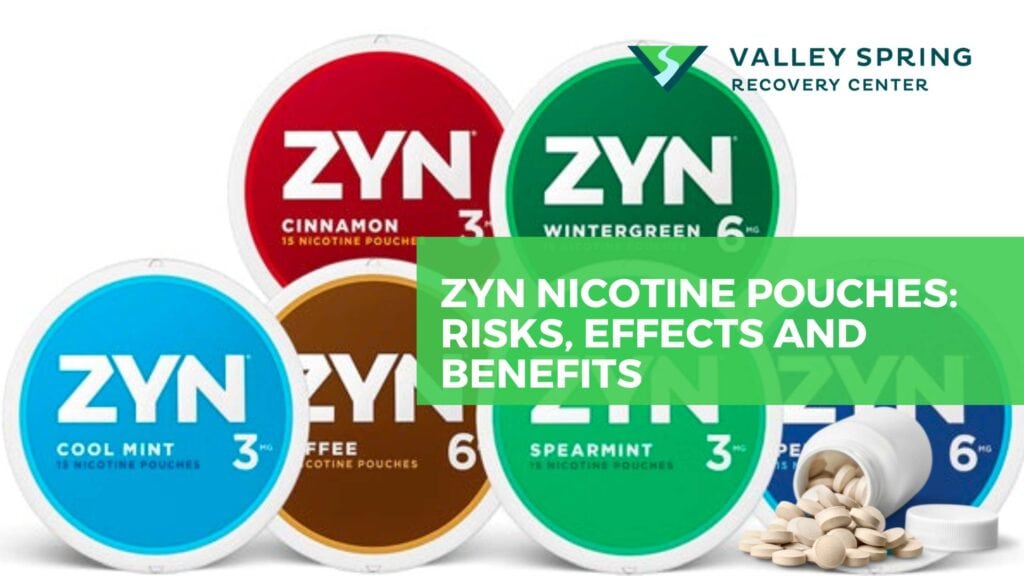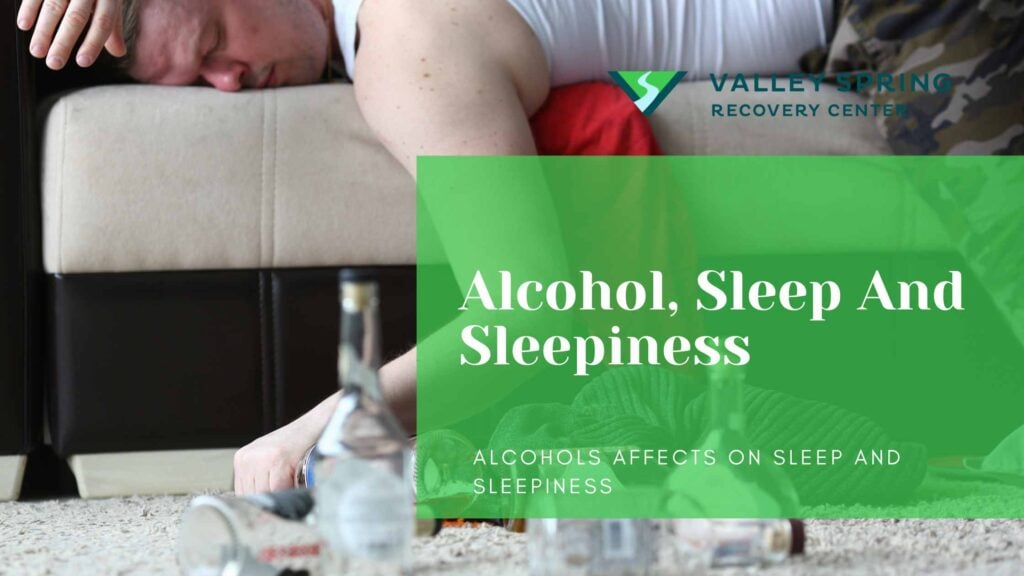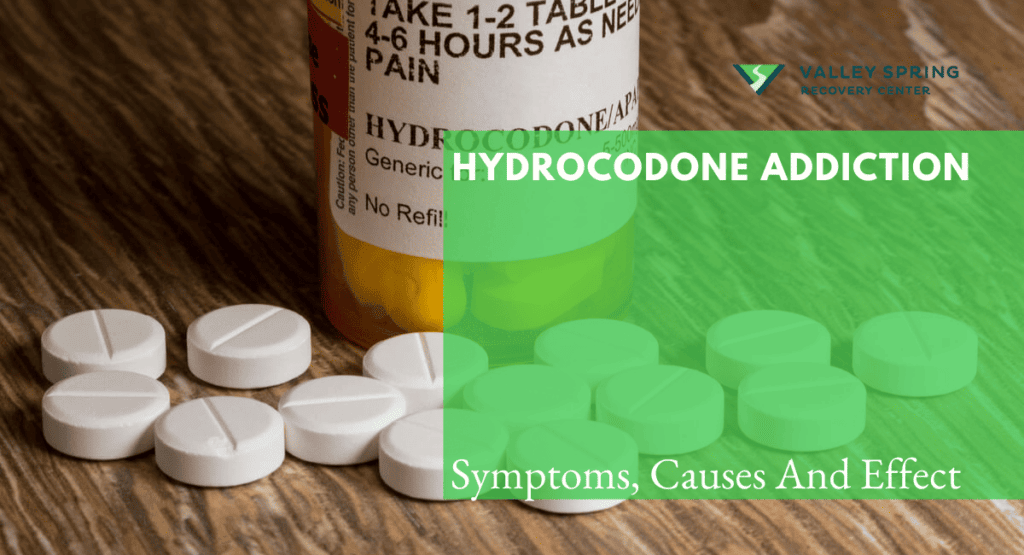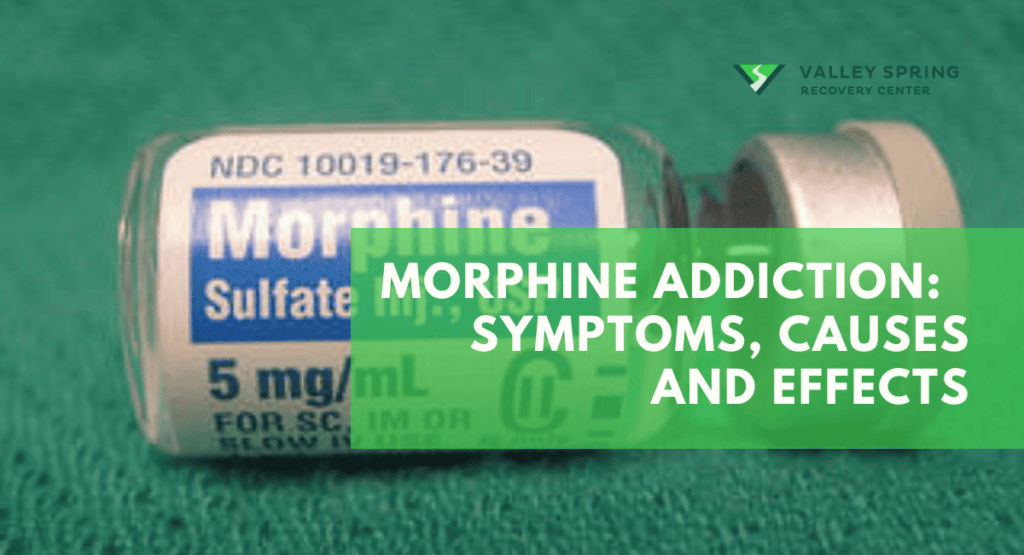Adderall is a stimulant medication prescribed for ADHD and narcolepsy that contains amphetamine and dextroamphetamine. Adderall works by changing the amounts of certain natural substances in the brain. The number of people prescribed Adderall has steadily grown from 32.2 million in 2017 to 41.4 million in 2021. Prescriptions for stimulants have been skyrocketing as it’s become easier and easier to get a diagnosis which has resulted in increasing addiction rates to prescription stimulants like Adderall. (IQVIA)
The symptoms of Adderall addiction may include needing higher doses to achieve the desired effect, experiencing discomfort or cravings when not using Adderall, failing to cut down or control Adderall use, prioritizing drug use over work, school, or other obligations, withdrawing from friends and family, and using Adderall despite physical or psychological consequences. It’s important to seek help if you or someone you know is experiencing these symptoms.
The causes of Adderall addiction can include misuse, peer pressure, stress and performance pressure, and co-occurring mental health disorders. Genetic predisposition is another factor, as individuals with a family history of substance abuse have a higher risk of developing addiction. If you or someone you know is struggling with Adderall addiction, it’s important to be aware of the causes.
The Effects of Adderall addiction are devastating and can be fatal if treatment is not sought as quickly as possible. For instance, the physical health consequences of Adderall addiction include heart problems, high blood pressure, and weight loss. On the other hand, you may also experience mental health issues such as anxiety, paranoia, and mood swings. You may also notice signs of impaired thinking and memory may occur, which can lead to cognitive decline.
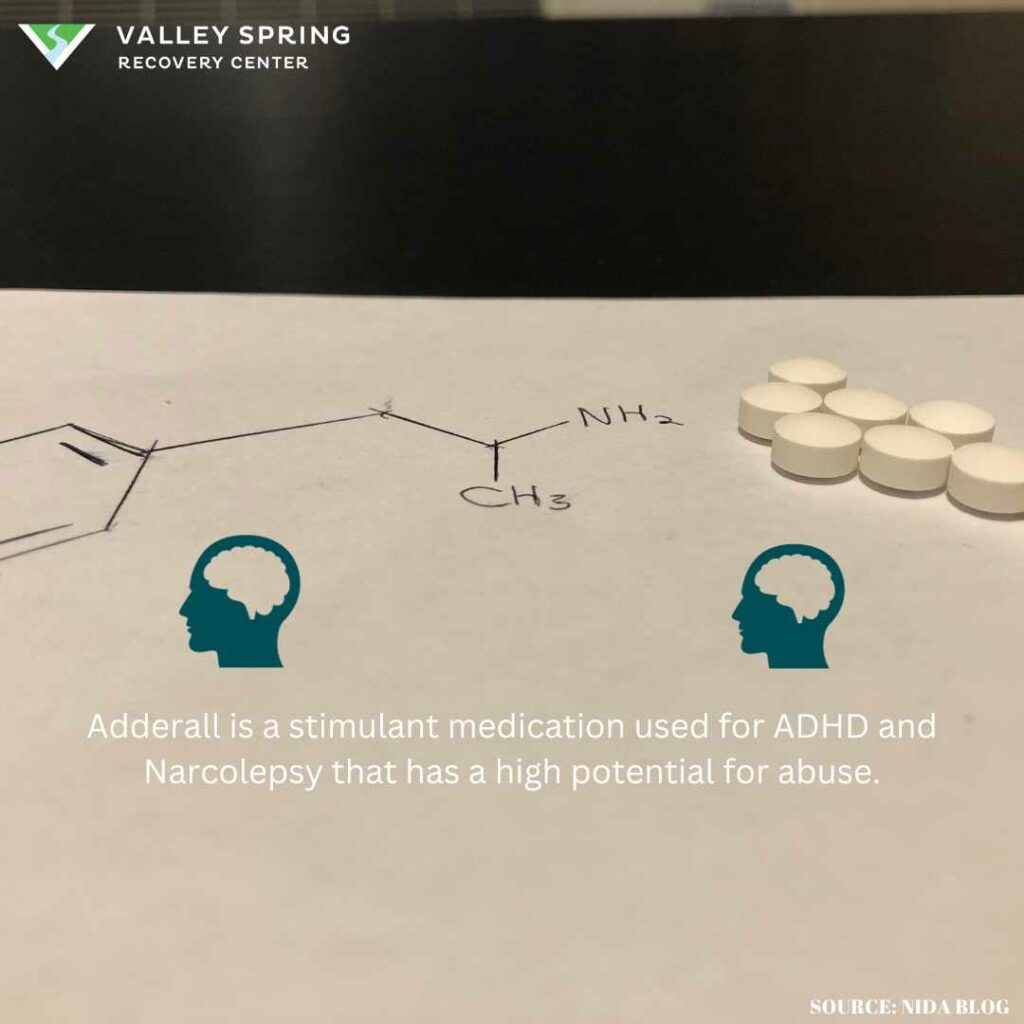
What is Adderall Addiction?
Adderall addiction, also known as amphetamine use disorder, refers to a condition in which an individual becomes physically and psychologically dependent on Adderall, a prescription medication containing amphetamine and dextroamphetamine. Adderall is primarily prescribed to treat attention deficit hyperactivity disorder (ADHD) and narcolepsy, which are characterized by impulsivity, inattention, and hyperactivity. (PubMed)
Addiction to Adderall involves compulsive use, tolerance, withdrawal, loss of control, social isolation, preoccupation, and several other negative consequences. It’s essential to recognize that Adderall is a potent stimulant with a high potential for abuse and addiction, especially when used without a prescription or in ways other than prescribed.
What are the signs and symptoms of Adderall addiction?
If you’ve ever wondered whether you or someone you know might be grappling with Adderall addiction, it’s crucial to recognize the telltale signs and symptoms that can indicate a deeper issue. They can include:
- Increased Tolerance: Needing higher doses of Adderall to achieve the desired effects or experiencing reduced effects from the usual dose.
- Withdrawal Symptoms: When not using Adderall, individuals may experience withdrawal symptoms such as fatigue, depression, irritability, and intense cravings.
- Compulsive Use: Repeatedly taking Adderall in larger amounts or over a longer period than intended, despite a desire to cut down or control use.
- Loss of Control: Unsuccessful efforts to reduce or control Adderall use, leading to a sense of powerlessness over the drug.
- Neglecting Responsibilities: Neglecting work, school, or other important responsibilities in favor of obtaining and using Adderall.
- Social Isolation: Withdrawing from social activities, hobbies, and relationships to use Adderall in isolation.
- Physical Health Issues: You may experience physical symptoms like rapid heartbeat, high blood pressure, weight loss, and gastrointestinal problems.
- Psychological Symptoms: Adderall addiction may lead to anxiety, paranoia, mood swings, and impaired cognitive function.
- Financial Problems: Spending a significant amount of money to obtain Adderall or facing financial difficulties due to drug use.
- Engaging in Risky Behaviors: Taking Adderall in ways other than prescribed, such as crushing and snorting it, which can be dangerous.
- Legal Issues: Obtaining Adderall without a prescription or engaging in illegal activities to support the addiction can lead to legal consequences.
- Preoccupation with the Drug: Spending a substantial amount of time thinking about, obtaining, and using Adderall, which can disrupt daily life.
If you or someone you know is exhibiting these signs, it’s essential to seek professional help from a healthcare provider or addiction specialist.
What makes Adderall addictive: How does it affect the brain?
Adderall is considered addictive due to its impact on the brain’s neurotransmitter systems, primarily dopamine and norepinephrine. This substance has the same effects as several other hard drugs like cocaine, Klonopin, heroin, and many others. Below is the breakdown of how Adderall affects your brain once invested:
- Enhancement of Neurotransmitters: Adderall contains amphetamine and dextroamphetamine, which stimulate the release and inhibit the reuptake of neurotransmitters, particularly dopamine and norepinephrine. This leads to increased levels of these neurotransmitters in the brain.
- Euphoria and Reward: The elevated levels of dopamine create a sense of euphoria, pleasure, and reward. This reinforces the desire to use Adderall, as the brain associates it with positive feelings.
- Improved Focus and Alertness: Adderall enhances concentration and alertness by increasing the release of norepinephrine. This can make users feel more productive and focused, reinforcing its use.
- Tolerance Development: With continued use of Adderall, the brain adapts by reducing its sensitivity to the drug’s effects. This results in users needing higher doses to achieve the same euphoric or therapeutic effects, leading to tolerance.
- Withdrawal Symptoms: When a person addicted to Adderall tries to quit or reduce their use, they may experience withdrawal symptoms like fatigue, depression, and intense cravings. These symptoms drive the compulsion to use again.
- Altered Brain Function: Long-term use of Adderall can lead to changes in brain structure and function. Prolonged exposure to high levels of dopamine can disrupt the brain’s reward system, making it harder to experience pleasure from natural rewards.
It’s important to note that while Adderall can be highly effective for people with ADHD when used as prescribed, misuse or non-prescription use can lead to addiction and a range of health and psychological problems. If you or a loved one are taking Adderall, do so only under the guidance of a healthcare professional to minimize the risk of addiction and its associated consequences.
What are the causes of Adderall addiction?
Adderall addiction can stem from the medication’s stimulant properties. It binds to dopamine and norepinephrine receptors, boosting brain chemicals that enhance concentration and well-being. This feeling of euphoria may lead you to misuse the drug, leading to consequences you can’t control. Below are some of the most common situations that may have caused your Adderall addiction:
- Misuse and Recreational Use: Taking Adderall without a prescription or using it for non-medical purposes, such as to enhance focus, energy, or academic performance, increases the risk of addiction.
- Peer Pressure: Influence from friends or peers who misuse Adderall recreationally can lead individuals to experiment with the drug and potentially develop an addiction.
- Underlying Mental Health Conditions: People with untreated or undiagnosed mental health disorders like anxiety, depression, or ADHD may misuse Adderall to self-medicate, which can lead to addiction.
- Genetic Predisposition: A family history of substance abuse or addiction can increase an individual’s susceptibility to developing an addiction to substances like Adderall.
- Stress and Performance Pressure: High-stress environments, such as competitive academic or professional settings, may lead some individuals to misuse Adderall as a way to cope with pressure or improve performance.
- Initial Positive Experiences: The euphoria and increased focus experienced when using Adderall can create a positive reinforcement loop, making individuals more likely to continue using it.
- Easy Access: Having easy access to Adderall, whether through a legitimate prescription or from friends who have prescriptions, can contribute to misuse and addiction.
- Lack of Awareness: Some individuals may not be fully aware of the risks associated with Adderall misuse or may underestimate the potential for addiction.
- Exposure to Substance Abuse: Growing up in an environment where substance abuse is prevalent can increase the likelihood of experimenting with and becoming addicted to drugs like Adderall.
It’s important to recognize that not everyone who uses Adderall will develop an addiction, and the causes of addiction can vary widely from person to person. However, understanding these potential causes can help individuals, healthcare professionals, and families take steps to prevent and address Adderall addiction when it does occur. If you suspect Adderall addiction in yourself or someone you know, seeking professional help is essential for effective treatment and recovery.
What are the Negative Effects of Adderall addiction?
If you or someone you know is addicted to Adderall, it’s important to understand that this addiction can have a range of physical, psychological, social, and financial effects. The severity of these effects can vary depending on how long the addiction has been going on and how much Adderall has been consumed.
- Cardiovascular Issues: Adderall can increase heart rate and blood pressure, potentially leading to heart problems, including arrhythmias and hypertension.
- Weight Loss: Appetite suppression is a common side effect of Adderall, which can lead to significant weight loss and malnutrition.
- Gastrointestinal Problems: Nausea, vomiting, and digestive issues can occur as a result of Adderall abuse.
- Sleep Disturbances: Chronic use of Adderall can disrupt sleep patterns, leading to insomnia and sleep-related problems.
- Dental Issues: Dry mouth and teeth grinding (bruxism) are common side effects of stimulant abuse and can lead to dental problems.
- Anxiety and Paranoia: Adderall abuse can cause or exacerbate anxiety disorders and lead to paranoid thoughts and feelings.
- Mood Swings: Users may experience mood swings, depression, irritability, and even episodes of aggression.
- Cognitive Impairment: Prolonged Adderall use can impair cognitive functions like memory, attention, and decision-making.
- Psychosis: In severe cases, Adderall addiction can lead to psychotic symptoms such as hallucinations and delusions.
- Relationship Strain: Adderall addiction can strain relationships with family, friends, and colleagues due to erratic behavior and social isolation.
- Academic or Work Problems: Individuals addicted to Adderall may struggle to meet academic or work responsibilities, which can lead to academic failure or job loss.
- Legal Issues: Obtaining Adderall without a prescription or engaging in illegal activities to support the addiction can result in legal consequences.
- Financial Strain: The cost of obtaining Adderall, especially without a prescription, can be substantial and lead to financial difficulties.
- Impulsive Spending: Adderall abuse can lead to impulsive spending on unnecessary items or risky ventures.
It’s important to note that the severity of these effects can vary widely among individuals, and you may not necessarily experience all of these consequences as a result of Adderall addiction. If you’re struggling with an addiction to Adderall, seeking professional help and support from addiction specialists is essential for your recovery and to manage these negative effects.
What are the benefits of Adderall?
Adderall is a stimulant drug that helps people with ADHD concentrate and maintain focus during activities, and manage behavioral issues. Additionally, it may aid in organizing tasks and honing listening abilities. Furthermore, this drug is prescribed for the treatment of narcolepsy—a sleep disorder—to assist in staying alert throughout the day.
Valley Spring Recovery Is Only One Phone call Away
Why Is there an Adderall shortage?
On October 12, 2022, the FDA posted a shortage of the immediate-release formulation of amphetamine mixed salts, commonly referred to by the brand name Adderall or Adderall IR. The shortage has occurred due to increased demand and supply chain issues in factories. There are ongoing manufacturing delays at Teva Pharmaceuticals, a major supplier of Adderall. The FDA stated “Until supply is restored, there are alternative therapies including the extended-release version of amphetamine mixed salts available to health care professionals and their patients for amphetamine mixed salts’ approved indications.”
There has been increased demand for Adderall by 27% since the pandemic started. (Iqvia) In reaction, the Drug Enforcement Administration made Adderall more accessible by easing regulations, permitting medications with a high potential for abuse, such as Adderall, to be prescribed through telehealth services which further increased the demand for Adderall. The pharmaceutical companies that manufacture Adderall like Teva Pharmaceuticals Novartis (NVS), Lannett (LCI), Mallinckrodt Pharmaceuticals (MNK), and Takeda Pharmaceutical (TAK) can not keep up.
What are the Treatment Options for Adderall addiction?
Treating Adderall addiction involves a combination of medical, psychological, and behavioral interventions that are tailored to your unique needs. When you speak with a specialist, they’ll discuss your condition, suggest several treatment options based on your addiction, and decide which one works best for you. Here are some common treatment options you may consider:
- Detoxification (Detox): The first step in treating Adderall addiction is often detoxification, during which the drug is safely and gradually tapered under medical supervision. This process helps manage withdrawal symptoms and safely remove the drug from the body.
- Medication-Assisted Treatment (MAT): While there are no FDA-approved medications specifically for Adderall addiction, some medications may be used to manage specific withdrawal symptoms and cravings, especially for co-occurring disorders like depression or anxiety.
- Individual Counseling: Psychotherapy, such as cognitive-behavioral therapy (CBT), can help individuals understand and address the underlying factors contributing to their addiction, develop coping strategies, and set recovery goals.
- Group Therapy: Group therapy sessions provide a supportive environment where individuals can share experiences, receive peer support, and learn from others in similar situations.
- Family Therapy: Involving family members in therapy can help address family dynamics, improve communication, and build a supportive network for the individual in recovery.
- Psychiatric Evaluation and Treatment: For those with co-occurring mental health disorders, a psychiatric evaluation and appropriate treatment, such as medication for depression or anxiety, can be an essential part of recovery.
- Behavioral Interventions: Techniques like contingency management, which provides rewards for maintaining abstinence, can be effective in motivating individuals to stay drug-free.
- Rehabilitation Programs: Residential or outpatient rehabilitation programs offer structured treatment plans, counseling, and support for individuals with Adderall addiction.
- Self-Help and Support Groups: Participation in self-help groups like Narcotics Anonymous (NA) or SMART Recovery can provide ongoing peer support and encouragement during recovery.
- Education and Relapse Prevention: Learning about the risks and consequences of Adderall addiction, as well as developing strategies to prevent relapse, is crucial.
- Holistic Approaches: Complementary therapies such as mindfulness, yoga, and exercise can promote overall well-being and help individuals manage stress and cravings.
Note that, with any of these different treatment options, your doctor may suggest either inpatient or outpatient treatment, depending on the circumstances surrounding your addiction and the level of severity within the addiction spectrum. Also, treatment plans are usually individualized to address the unique needs and circumstances of each person struggling with Adderall addiction. If you or a loved one are dealing with Adderall addiction, you must work closely with healthcare professionals, addiction specialists, and therapists to create a comprehensive and effective treatment strategy.
How long does it take to detox from Adderall?
The duration of detox from Adderall addiction can vary significantly from person to person and depends on various factors, including your overall health, the extent of addiction, the duration of use, and the presence of any co-occurring disorders. Generally, Adderall detox can last anywhere from several days to a few weeks.
- Initial Withdrawal Symptoms (First Few Days): Withdrawal symptoms typically begin within a day or two after discontinuing Adderall. Common initial symptoms include fatigue, depression, anxiety, increased appetite, and cravings. These symptoms can be uncomfortable but are usually not life-threatening.
- Peak Withdrawal Symptoms (First Week): Withdrawal symptoms tend to peak during the first week of detox. The intensity of symptoms can vary widely, with some individuals experiencing more severe cravings, mood swings, and physical discomfort than others.
- Subsiding of Acute Symptoms (First Two Weeks): After the first week, most acute withdrawal symptoms gradually start to subside. Fatigue and mood-related symptoms may persist but typically become less severe.
- Residual Symptoms (Several Weeks): Some individuals may experience residual symptoms, such as mood disturbances or sleep difficulties, for several weeks or even months after quitting Adderall. These symptoms can vary in duration and intensity.
- Recovery and Stabilization (Months to Years): While the acute withdrawal phase may last only a few weeks, the process of recovery and stabilization can extend for an extended period. It involves addressing the psychological and behavioral aspects of addiction, developing coping strategies, and maintaining a drug-free lifestyle.
| Phase of Withdrawal | Timeframe | Description |
|---|---|---|
| Initial Withdrawal Symptoms (First Few Days) | Within a day or two | Fatigue, depression, anxiety, increased appetite, and cravings. Symptoms are usually not life-threatening. |
| Peak Withdrawal Symptoms (First Week) | During the first week | Varying intensity of cravings, mood swings, and physical discomfort. Some individuals may experience more severe symptoms. |
| Subsiding of Acute Symptoms (First Two Weeks) | After the first week | Most acute symptoms start to subside. Fatigue and mood-related symptoms may persist but typically become less severe. |
| Residual Symptoms (Several Weeks) | Several weeks to months | Mood disturbances or sleep difficulties may persist, varying in duration and intensity. |
| Recovery and Stabilization (Months to Years) | Months to years | Involves addressing psychological and behavioral aspects of addiction, developing coping strategies, and maintaining a drug-free lifestyle. |
It’s important to note that the severity and duration of these symptoms can vary widely among individuals, and some may even experience post-acute withdrawal syndrome, where mood-related symptoms and cravings persist for an extended period of time.
What withdrawal symptoms are associated with Adderall addiction?
If you have developed a physical and psychological dependence on Adderall, you may experience withdrawal symptoms when you stop using the drug. These symptoms can vary in intensity and duration from person to person. Some of the most common withdrawal symptoms associated with Adderall addiction include:
- Fatigue
- Depression
- Anxiety
- Increased Appetite
- Irritability
- Sleep Disturbances
- Difficulty Concentrating
- Vivid Dreams
- Psychomotor Slowing
- Cravings
What Are Brand Names For Adderall?
- Adderall XR
- Mydayis
- Dexedrine
- Dextrostat
- Teva Brand Adderall
What Are The Slang Names For Adderall?
- Study Buddies
- Smart Pills
- Uppers
- Speed
- Beans
- Pep Pills
- Black Beauties
What is an amphetamine?
An amphetamine is a type of central nervous system stimulant that affects chemicals in the brain and nerves contributing to hyperactivity and impulse control. It belongs to a class of drugs known as sympathomimetic amines. Amphetamines are commonly used in the medical treatment of conditions like Attention Deficit Hyperactivity Disorder (ADHD) and narcolepsy, a sleep disorder characterized by excessive daytime sleepiness and sudden attacks of sleep.
The drug works by increasing the levels of certain neurotransmitters, such as dopamine and norepinephrine, in the brain. This action helps to improve focus, attention, and alertness in individuals with ADHD and promotes wakefulness in those with narcolepsy. However, due to their stimulating effects, amphetamines also have a high potential for abuse and addiction, especially when used inappropriately or without medical supervision.
Amphetamines come in various forms and are available under several brand names. For example, Adderall is a well-known prescription medication that contains a mixture of amphetamine salts. Methamphetamine, commonly known as crystal meth, is a more potent form of amphetamine that is illegal in most jurisdictions due to its high potential for abuse and lack of accepted medical use.
It’s important to note that while amphetamines have legitimate medical uses, they should only be used under the guidance of a healthcare provider due to the risks of side effects, abuse, and addiction. Side effects can include increased heart rate, elevated blood pressure, insomnia, dry mouth, and loss of appetite, among others. Therefore, proper diagnosis, prescription, and monitoring are essential for the safe and effective use of amphetamines.
What is the difference between Vyvanse and Adderall?
Vyvanse and Adderall are both medications used to treat Attention Deficit Hyperactivity Disorder (ADHD), but they differ in their composition and release mechanism. Adderall contains a mixture of different amphetamine salts (amphetamine and dextroamphetamine) and is available in both immediate-release (IR) and extended-release (XR) formulations. Vyvanse contains lisdexamfetamine, a prodrug of dextroamphetamine, which means it is converted into an active drug in the body. This conversion process allows for a more gradual and longer-lasting effect, making Vyvanse an extended-release medication. Due to these differences, Vyvanse tends to have a smoother onset and offset effect compared to Adderall, potentially reducing the likelihood of rebound symptoms as it wears off. However, both medications are similar in their efficacy for treating ADHD and are classified as Schedule II controlled substances due to their potential for abuse and dependence.
Where to get treatment for Adderall addiction?
Treatment is available for Adderall addiction at rehab centers and addiction treatment providers across the country. Valley Spring Recovery Center can help with addiction to Adderall. Valley Spring is an addiction treatment center in Bergen County NJ with partial hospitalization, IOP, and OP programs as well as telehealth that focus on recovery from substance use disorder and creating a new and positive life. If you want to speak with an admissions counselor, our team is standing by 24/7 and here to help you break free from addiction. Contact us today.
Sources
https://pubmed.ncbi.nlm.nih.gov/31739230/#:~:text=Attention%20deficit%20hyperactivity%20disorder%20(ADHD,disturbance%20and%20excessive%20daytime%20sleepiness.
https://www.accessdata.fda.gov/scripts/drugshortages/dsp_ActiveIngredientDetails.cfm?AI=Amphetamine+Aspartate%3B+Amphetamine+Sulfate%3B+Dextroamphetamine+Saccharate%3B+Dextroamphetamine+Sulfate+Tablets&st=c&tab=tabs-4&panels=0
Kristy Ashe
All author postsShare This Post

